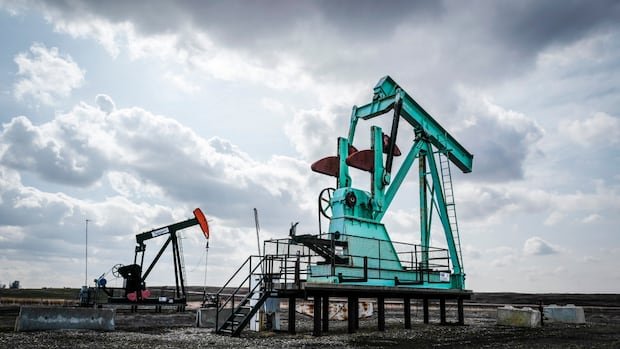A recent international report suggests that Canada and other key fossil fuel-producing nations are obstructing global efforts to achieve crucial climate change goals. The report indicates that by 2030, production levels are anticipated to exceed what is compatible with the Paris agreement by more than double. While certain countries have committed to transitioning to clean energy, others are reverting to outdated reliance on fossil fuels, according to the report.
The report, known as the Production Gap Report and jointly produced by three climate research non-profits, emphasizes the ongoing failure of governments to reduce fossil fuel production and lower global emissions. As a result, future production will need to decrease significantly to offset the escalating emissions. The projected increase in fossil fuel production by 2030 is estimated to be 120% higher than what is necessary to limit global warming to 1.5 degrees, and 77% higher than what aligns with a two-degree limit.
Notably, the report highlights that the gap between necessary emission reductions and planned production has widened compared to two years ago. Coal production is expected to exceed the pathway for 1.5 degrees by 500% and for two degrees by 330% by 2030. Similarly, global oil and gas production levels are forecasted to be 31% and 92% higher, respectively, than what is consistent with a 1.5-degree target, or 16% and 33% higher than a two-degree pathway.
The report underscores that adhering to the temperature limits set by the 2015 Paris agreement is crucial to mitigate severe and irreversible climate impacts. Nevertheless, there are growing concerns that the 1.5-degree target could be surpassed soon, urging countries to take immediate action to reduce further warming and implement strategies to lower global temperatures.
In the context of major fossil fuel-producing nations analyzed in the report, Canada’s planned increase in oil production for 2030 ranks among the highest, trailing only Saudi Arabia, Brazil, the United States, and Nigeria. Canada holds a significant share of global oil production, standing as one of the top four oil producers worldwide.
It is worth noting that the report may underestimate Canada’s contribution to fossil fuel production due to outdated energy forecasts, predating the approval of several new liquefied natural gas projects. The expansion of oil and gas production in Canada coincides with the rollback of key climate policies, raising concerns about the country’s environmental direction.
Prime Minister Mark Carney’s decisions to repeal the consumer carbon price, pause the electric vehicle sales mandate, and show hesitancy towards legally binding emissions targets have drawn criticism. Despite the government’s commitment to achieving net-zero emissions by 2050, concerns persist regarding the future of policies aimed at capping emissions from the oil and gas sector.
Additionally, provinces like Alberta and Saskatchewan have taken actions such as freezing industrial carbon prices and extending the lifespan of coal-fired power plants, further complicating Canada’s efforts to curb emissions. The report also calls attention to Canada’s substantial investments in projects like the Trans Mountain pipeline, contributing to ongoing climate concerns.
Although the report presents challenges, it also highlights positive developments in clean energy technology. Solar, batteries, and electric vehicles are experiencing accelerated deployment and declining production costs, setting new records. The plummeting costs of renewable energy have made it the most cost-effective option for new electricity generation in many regions globally.

